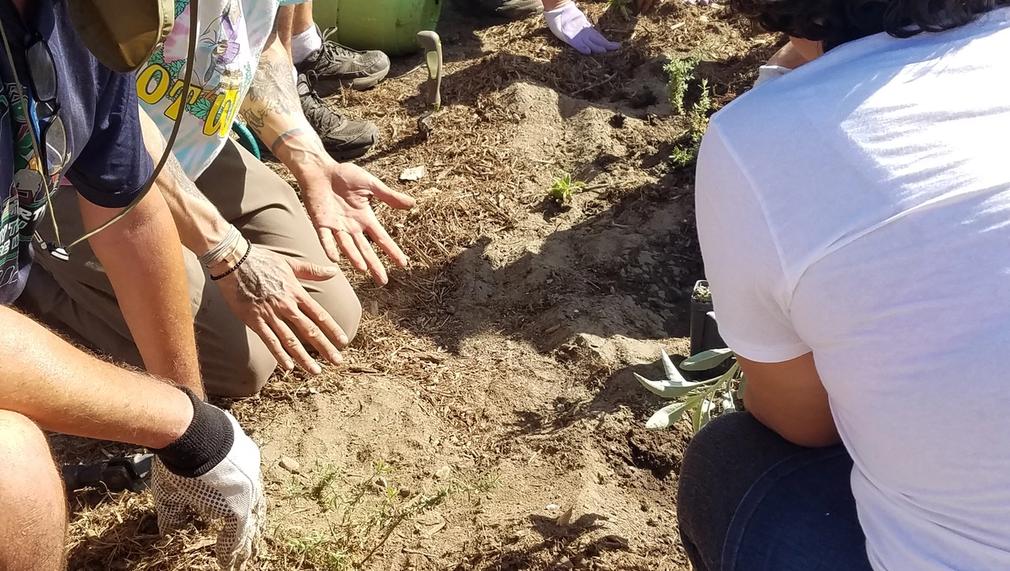Hydroponic Herb Farm
Activities, Recreation, and Care (ARC) is launching a social enterprise for adults with intellectual and developmental disabilities: a hydroponic herb garden. The "ARC Campus" has the space necessary to grow, dry, package, and sell fresh and dried herbs.
This project will provide vocational training in gardening, hydroponics, drying/dehydrating herbs, packaging, labeling, shipping, receiving, inventory, purchasing, customer service, and sales. It will also give people a chance to interact with adults with I/DD and promote inclusion.

What is the primary issue area that your application will impact?
Income inequality
In what stage of innovation is this project, program, or initiative?
Pilot or new project, program, or initiative (testing or implementing a new idea)
What is your understanding of the issue that you are seeking to address?
Adults with intellectual and developmental disabilities (I/DD) face significant barriers to employment and social inclusion, despite their potential to contribute meaningfully to the workforce and community. These challenges stem from two primary issues: Limited Employment Opportunities: Many adults with I/DD are able to work when given appropriate education, training, and support. However, widespread stigma and misunderstanding about I/DD often result in chronic unemployment (over 80% nationally). Social Isolation and Exclusion: The pervasive stigma surrounding I/DD extends beyond the workplace, leading to social isolation for many adults with these conditions. This isolation not only impacts their quality of life but also perpetuates misconceptions about their abilities and potential. By addressing these needs, we can foster a more inclusive community, enhance the lives of individuals with I/DD, and tap into an often-overlooked pool of talented and motivated workers.
Describe the project, program, or initiative this grant will support to address the issue.
Activities, Recreation, and Care (ARC) is launching a social enterprise for adults with I/DD that will provide both vocational training and a path to employment: an urban hydroponic herb farm. They will have an opportunity to explore if they would like to seek part-time employment. We are receiving a starter hydroponic herb garden as an in-kind gift from a hydroponic supplier. They will train ARC staff in growing and drying methods, using a “Train the Trainer” model. This model will then inform our staff on how to build the skills of ARC participants. The Garden Project will teach marketable skills: gardening, hydroponics, inventory, receiving (plants and supplies), growing herbs, starting seedlings, dehydrating herbs, air drying herbs, packaging, sales (at Farmer’s Markets and in-house), shipping, and customer service. ARC has the knowledge and capacity to create and manage a successful social enterprise. The “ARC Campus” consists of six homes (four residential, one office/program space, and one recreational space). We have a large yard area, swimming pool, basketball court, and rec/fitness room. We consulted with Shemesh Farms, a local nonprofit farm and social enterprise that employs people with I/DD. ARC launched a vegetable garden during the pandemic to help offset the social isolation our residents experienced. Our participants love working in the garden. The produce is used in our cooking classes and extra vegetables are given to our family members and volunteers.
Describe how Los Angeles County will be different if your work is successful.
How Los Angeles Will Be Different: 1. Reduced Stigma: Community interactions with adults with I/DD will increase, fostering acceptance. 2. Enhanced Social Inclusion: Involving adults with I/DD in urban farming and sales challenges preconceptions, encouraging open-minded engagement. 3. Economic Resilience: Our social enterprise will attract new volunteers and donors to ARC. 4. Community Contribution: We’ll offer products to local food banks and nonprofits demonstrating our community commitment while fine-tuning our offerings. 5. Expanded Social Connections: Participants will build relationships beyond ARC, integrating further into the larger community. 6. Changing Perceptions: We'll showcase the capabilities of individuals with I/DD, challenging stereotypes. Our project envisions a more inclusive Los Angeles. By offering many their first positive interaction with people with I/DD, we'll demonstrate how people with I/DD can contribute to the community.
What evidence do you have that this project, program, or initiative is or will be successful, and how will you define and measure success?
Person-centered program planning guides our practice of providing the programs and services our adults with I/DD want and need individually. We will define success by the number of adults with I/DD who participate in the program and enjoy it. We continually monitor our participants for morale, skill acquisition, attendance, and interest in the programs we offer. We will track our ability to grow healthy plants for resale, the taste and appearance of the herbs, our ability to dry or dehydrate the herbs, and sales. We will also track the number of opportunities we can create to donate and to sell in the community, customer feedback, and which herbs and herb blends are the most popular with our customers. We anticipate growing the business into a successful social enterprise and plan to donate herbs to our local food banks and shelters.
Approximately how many people will be impacted by this project, program, or initiative?
Direct Impact: 75.0
Indirect Impact: 500.0